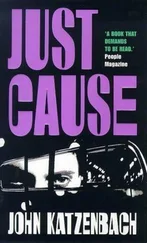“Like what?”
“Like her marriage. She tried to pretend everything was fine, that she and her husband were deeply in love. But any time that subject came up, she would pull her head in like a turtle and hide her hands in her lap. In fact, whenever anyone raised their voice or tried to intimidate her, she showed the classic body language of an abuse victim.”
A squirrel darted out into the road. Billy swerved to miss it.
Claudia squeaked and grabbed on to the door. “God, Billy! What the hell are you doing?”
“Trying not to hit a squirrel.”
“Oh. That shows great compassion. But I’d prefer one dead squirrel to a head-on with a semi.”
“It was a reflex.” He didn’t like her assigning a motive to his actions. Great compassion. For a squirrel? Really? But he had a lot of hours to spend with her, and he didn’t want to spend them arguing.
“So,” he continued, “you’re telling me someone does an imitation of a turtle, they’re lying?”
Claudia released the door handle and seemed to gather her composure around her. “That was one of many signs that she felt threatened when certain subjects were broached. Each person is different, though. I have to observe a subject for some length of time to get a baseline of their usual body language, then note when that changes—”
“Yeah, okay.”
“You don’t believe me?”
He shrugged, unwilling to tell her what he really thought about hocus-pocus disguised as science. He much preferred the old-fashioned method of catching someone in a lie—breaking them down with tough interrogation.
“What I do is legitimate science, backed up by scores of studies—”
“Really, you don’t have to convince me. It’s not essential for me to understand your work to do my job, is it?”
“Well, no.”
“You just want me to interrogate Mary-Francis so she’ll tell us about this supposed new evidence, and you’ll observe.”
“Interrogate is rather a strong word. I don’t want you to put too much pressure on her. It could completely shut her down or cause her to end the interview.”
“Hmm.” He had his own way of questioning a suspect, a way that usually worked, honed by his experience with the Dallas Police Department. He’d have to play it by ear. “Any idea what this evidence is?”
“Only that it’s something shocking. But whatever it is, I want you to evaluate it from a cop’s point of view.”
“That means I ask hard questions.”
“I know. Just don’t bully her, or her stressed-out body language will override everything else.”
“Got it.”
They lapsed into silence. Claudia shifted in her seat, crossed and uncrossed her legs. Billy couldn’t help looking at the bit of leg she revealed as her skirt slid up.
Damn, hard to keep your eyes on the road when something like that was sitting next to you.
“So you really don’t believe in what I do,” she finally said.
He grinned. “That really bugs you, huh?”
“Yes.”
“Why? You must be used to skepticism.”
“Usually not from people in my own camp. I thought Daniel only hired open-minded investigators.”
“You’re saying I have a closed mind?”
“I think you refuse to open your mind to something that goes against your deeply held beliefs. In my business we call that—”
“Stop right there. You are not allowed to analyze me. That’s not part of the deal.”
“You didn’t object to my analysis during your initial employment screening.”
“’Cause if I had, I wouldn’t have gotten the job. My head is just fine, thanks. It doesn’t need shrinking.”
“Fine.” The single word came out sharp and punchy as a quick right jab. But after a few moments of tense silence, she spoke again, sounding much more relaxed. “I apologize. Analyzing everybody I spend time with is automatic for me.”
That was something Billy understood. Even now, years after his undercover work, he still evaluated every person he met in terms of potential threat. He still sat with his back to a wall. And he still kept a spare gun inside his boot.
Back in the day, he hadn’t been completely safe anywhere, not even behind locked doors. Ingratiating himself with one party of drug dealers made him a target for the other. He’d had a price on his head when Sheila was killed. His superiors had agreed that relocation to a different city, where his face wasn’t known, was the best course of action.
The Houston P.D. would have hired him, but he’d decided that he was done with police work. Getting the job with Project Justice had seemed like a godsend.
“Didn’t mean to overreact. But if you’re going to pick apart every word I say or every gesture I make, maybe you should keep your observations to yourself.”
She raised an eyebrow. “Afraid of what you might hear?”
“Let’s just say I don’t want to have to defend myself against incorrect assumptions. I’m a lover, not a fighter.” He smiled and hoped she took that in the spirit he’d intended—as a joke. Because even though he’d spent a good portion of his sleepless night last night fantasizing about her slender legs wrapped around his hips, he did not intend to become her lover.
Like most women, she would want way more from him than he was prepared to give.
* * *
BY THE TIME MARY-FRANCIS Torres was led into the interview room wearing handcuffs and leg irons, Claudia had set up her small video camera in one corner. She might want to analyze the video later, run it in slow motion to detect the rapid-fire expressions that were too fast for human eyes to catch.
Claudia had requested that she and Mary-Francis be seated face-to-face, no glass partition, no telephones, not even a table between them. The prison officials had reluctantly agreed after Daniel had intervened. Whatever people thought of Project Justice’s efforts to free inmates who shouldn’t be in prison, Daniel’s name had clout.
“Remove her handcuffs, please,” Claudia instructed the guard.
“I can’t do that, ma’am.”
“Yes, you can,” she said smoothly. It was essential that Claudia observe Mary-Francis’s entire body. Legs and feet often revealed a lot because people didn’t monitor those body parts as much as hands and facial expression.
With a bit more prodding, the guard finally did as Claudia asked, though he cautioned her and Billy that no touching was allowed.
Finally they were left alone, and Claudia was able to inspect her subject.
Mary-Francis Torres was forty-three years old, slightly overweight, with black-and-silver hair scraped into a tight ponytail. Before imprisonment she’d worn it in a bun, but she probably wasn’t allowed hairpins.
She looked as if she was holding up pretty well. But death row inmates, isolated from the rest of the population, didn’t have to worry about fights, or other inmates stealing their food. They were allowed books, sometimes a radio and an hour of outdoor recreation a day.
It was probably the most comfortable way to spend time in a maximum-security prison, not that Claudia would recommend it.
Prison had not yet humbled this woman. She still wore a belligerent expression, a subtle sneer that had not impressed the jury at her trial.
Claudia supposed she would be belligerent, too, if someone unjustly accused her of killing her husband. Assuming, of course, that she had a husband.
“Hello, Mary-Francis.” Claudia used her most soothing voice. “How are you doing?”
“How do you think?” Mary-Francis spoke with only a slight accent. She had emigrated to the U.S. when she was fifteen, Eduardo Torres’s child bride.
“Is there something you need?” Claudia asked. “Toiletries or books?”
Mary-Francis declined to answer the question, and instead looked pointedly at Billy. “Who is he?”
Читать дальше












